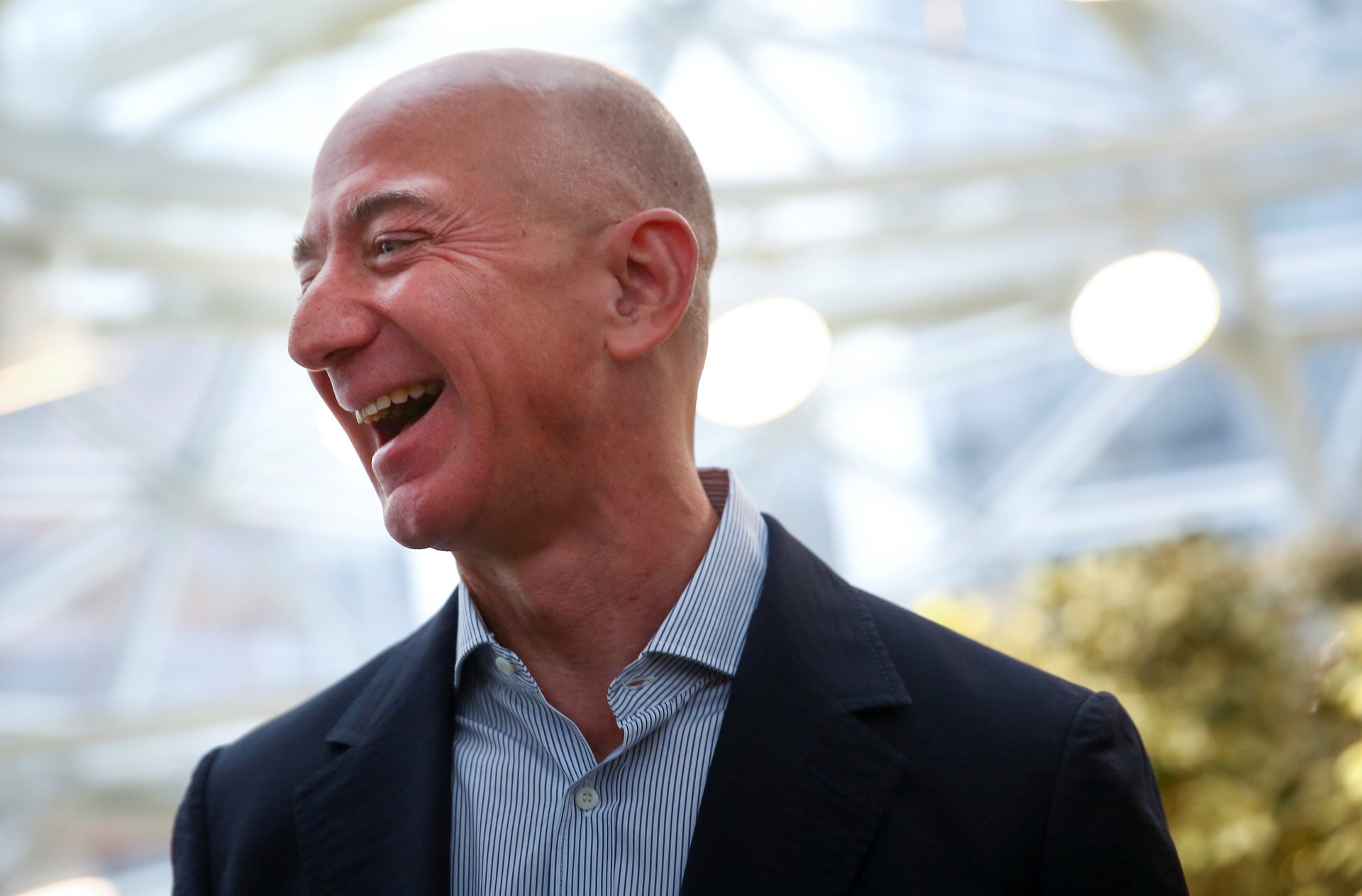Jeff Bezos has decided to help the homeless
After a comfortable two months as the richest man in modern history, and with a personal fortune of roughly $163 billion, Amazon founder and CEO Jeff Bezos is becoming a philanthropist.


After a comfortable two months as the richest man in modern history, and with a personal fortune of roughly $163 billion, Amazon founder and CEO Jeff Bezos is becoming a philanthropist.
On Sept. 13, on Twitter, Bezos announced the creation of the Bezos Day One Fund. The fund will start by tackling two causes, preschool education for low-income communities and helping the homeless, Bezos wrote in a memo he shared on Twitter. It has an initial commitment of $2 billion.
“The Day 1 Families Fund will issue annual leadership awards to organizations and civic groups doing compassionate, needle-moving work to provide shelter and hunger support to address the immediate needs of young families,” Bezos wrote. “The vision statement comes from the inspiring Mary’s Place in Seattle: no child sleeps outside.”
Mary’s Place is the local nonprofit that Amazon partnered with last year to build a 200-bed homeless shelter, slated to open in 2020, using 47,000 square feet of space in its next office. The plan was revealed in dramatic fashion, with an Amazon official delivering Mary’s Place a large golden key in an Amazon box. The year before that, Amazon donated one of its unused buildings, an old Travelodge hotel, as a temporary shelter. Seattle’s homelessness crisis is one of the worst in the country, thanks in part to a booming tech sector and soaring rents.
Yet Amazon hasn’t always been so willing to help the homeless. Earlier this year, for example, Seattle City Council proposed a “head tax” on large employers that would be used to fund homelessness and affordable housing programs. An early draft of the bill called for employers with more than $20 million in revenue to pay $0.26 for each hour worked by a Seattle-based employee, or roughly $520 a year. The proposal was projected to add $20 million to $25 million a year to Amazon’s tax bill. In response, the company paused construction on a new office tower and threatened to sublease its space rather than expand in Seattle.
In mid-May, the city council passed a watered-down version of the bill. This new “head tax” authorized about $275 a year in tax revenue per employee, or about $11 million for Amazon. It was projected to raise $45 million to $49 million in annual revenue to fund homelessness projects. Amazon was displeased. “While we have resumed construction… we remain very apprehensive about the future created by the council’s hostile approach and rhetoric toward larger businesses, which forces us to question our growth here,” Amazon spokesperson Drew Herdener said in a statement at the time.
A month later, facing fierce opposition from the business community, and a ballot challenge led by Amazon and Starbucks, Seattle’s city council voted to repeal the tax hike.
We don’t know crucial details about the Day One fund, such as how much of the money will be dispersed each year and what share will go toward homelessness programs versus preschools. (Amazon declined to comment beyond Bezos’s statement.) Even so, it seems safe to say the $2 billion in philanthropic funds committed by Bezos dwarfs the tax revenue Seattle would have raised from Amazon with its head tax.
As Amazon faces increased political pressure from the right and the left, it behooves Bezos, who is synonymous with his company, to cultivate a more charitable image. (Bezos has been criticized for his lack of philanthropy in the past, especially compared to the likes of billionaires Bill Gates and Warren Buffett.) It also helps Amazon, when the Seattle city council scuffle is mentioned in the future, to be able to point out that its CEO later donated a far greater sum, earmarked for the same cause, from his personal coffers.
But is it more charitable? Taxes on a business, after all, make it harder to be profitable, and Amazon is known for being ruthless about costs and cutting it close on profits. Getting taxed by Seattle could also have set a bad precedent for Amazon in other cities, particularly as it searches for a location for its second North American headquarters. Bezos, on the other hand, has loads of money and no pressure on his personal cash flow. He could get a tax write-off for the contribution. Perhaps most importantly, putting the money into a charitable fund rather than having it collected through taxes means Bezos, not the government, is in control.